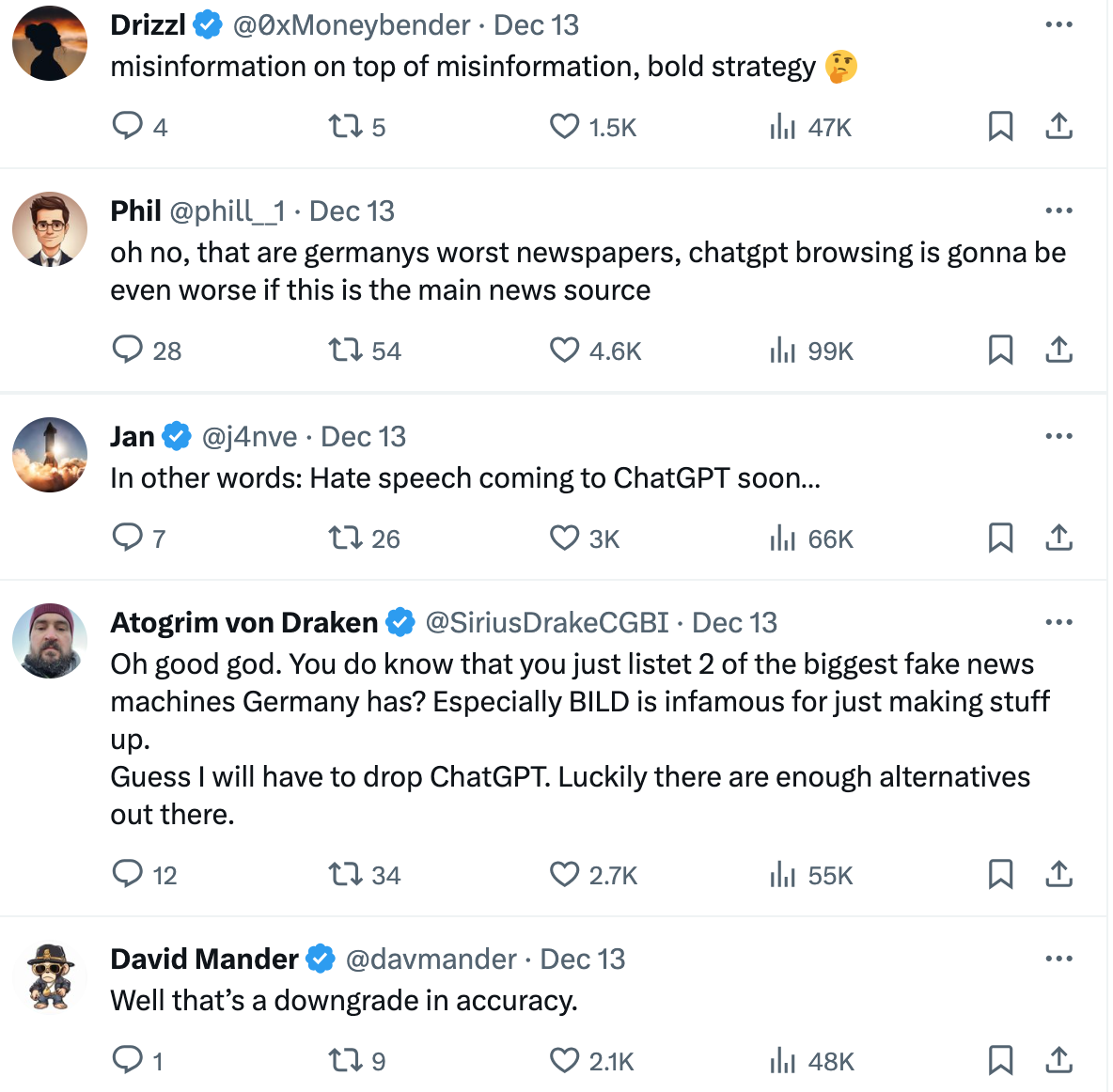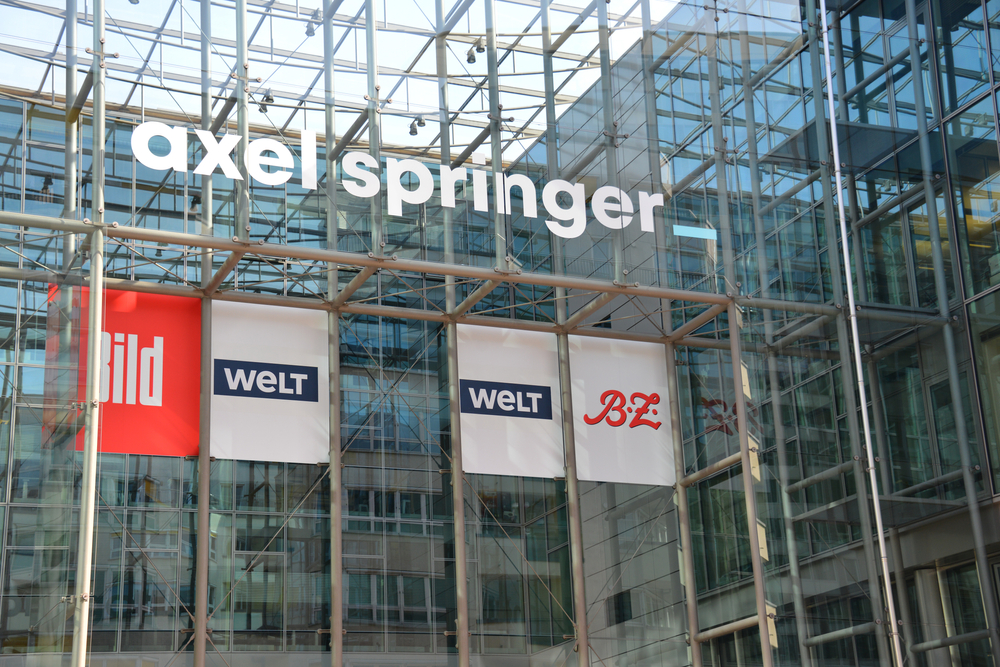OpenAI has partnered with media and news publisher Axel Springer to deliver summaries of global news content to ChatGPT users.
In its announcement, OpenAI said this partnership was motivated by the company’s desire “to strengthen independent journalism in the age of artificial intelligence.”
News media websites have seen AI as both a threat and an opportunity. Using AI to create news content seemed like a good idea but didn’t go very well for the likes of Sports Illustrated, The Guardian, and Gannet.
Media companies like the BBC have been blocking AI scraper bots as they fear users of tools like ChatGPT could get news without clicking through to their websites, depriving news outlets of ad revenue. Associated Press has since licensed some of its archives to OpenAI to use for training, but blocks access to current news.
With this new partnership, OpenAI aims to satisfy new ways we consume content while providing a good business case for media houses to support its efforts.
We have formed a new global partnership with @AxelSpringer and its news products.
Real-time information from @politico, @BusinessInsider, European properties @BILD and @welt, and other publications will soon be available to ChatGPT users.
ChatGPT’s answers to user queries will…
— OpenAI (@OpenAI) December 13, 2023
Axel Springer CEO Mathias Döpfner said, “We are excited to have shaped this global partnership between Axel Springer and OpenAI – the first of its kind. We want to explore the opportunities of AI-empowered journalism – to bring quality, societal relevance, and the business model of journalism to the next level.”
ChatGPT users will receive summaries of selected global news content from Axel Springer’s media brands. These include Politico, Business Insider, BILD, and WELT. These summaries will also include news content that is behind paywalls.
OpenAI COO Brad Lightcap said, “We are deeply committed to working with publishers and creators around the world and ensuring they benefit from advanced AI technology and new revenue models.”
Unbiased news?
Most news publishers claim to be unbiased but in reality, they all serve special interests or at least some inclination to one political side or the other. When OpenAI announced the partnership on X the post garnered a string of criticism of Axel Springer’s brands.

AI models already have challenges counteracting bias inherent in training datasets. When we consume news from a single source it inevitably shapes our worldviews. Is ChatGPT about to become even more biased?
Axel Springer’s news brands have an undisguised lean to the right, which is either endorsed or criticized depending on which side readers are on.
In October employees of Upday, a news aggregator app owned by Axel Springer, told The Intercept they had been instructed to cover the war in Gaza with a pro-Israel slant and downplay Palestinian civilian deaths.
OpenAI CEO Sam Altman and Head of Research Tal Broda wear their hearts on their sleeves. Looking at their X profiles and tweets it’s clear where their sympathies lie in this very complex situation.
Will OpenAI entertain similar partnerships with media houses that publish views that don’t align with theirs? Could we expect content from a news outlet like Al Jazeera in our feeds?
The announcement on Axel Springer’s website said the “collaboration also involves the use of quality content from Axel Springer media brands for advancing the training of OpenAI’s sophisticated large language models.” In June the company informed staff that big changes were coming as it planned to use AI to replace editorial and layout roles.
News written by AI is inevitable, and it’s going to get a lot better than the recent poor attempts. It’s just not likely to get any less biased. Users may end up choosing their preferred AI chatbot based on criteria other than benchmark test results.





